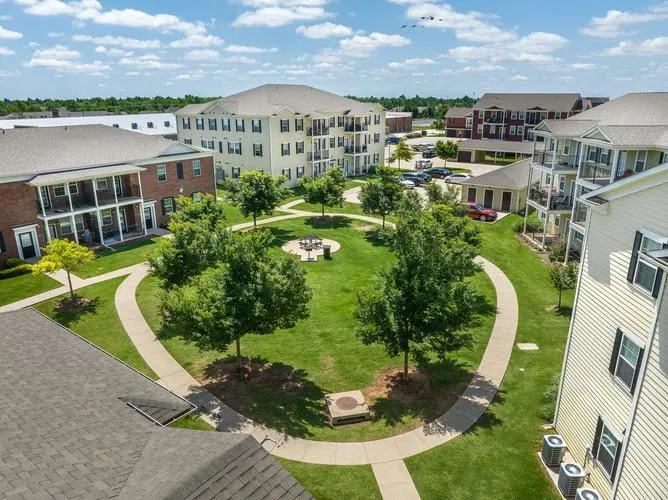Being sturdy and reliable for decades, people have always considered Real Estate, residential as well as commercial, to be the most viable investment option. However, during unprecedented events, such as a recession or an inflation, many people often wonder whether a Real Estate investment can weather the storm. “Should I invest in real estate during a recession?” is a question we get asked often. Just like any other industry, the Real Estate market also has taken considerable hits during previous economic downturns. Let's find out together in this article "Why Multifamily Real Estate Investors Are NOT Worry About Recession Or Inflation?".
First of all, “to know oneself is true progress” that is why we need to be aware of the definition of recession and inflation so later on we can understand the reasons investors still invest in Multifamily Real Estate during those economic downfalls.
WHAT IS RECESSION?
A recession is considered to be any period in which the national gross domestic product (GDP) growth rate is negative for two consecutive quarters or more. In common terms, a recession is when business activity, sales and revenue begin to go down. Businesses stop expanding and many employers stop hiring or even begin to lay people off. There is no way to predict with certainty when a recession will hit - and moreover, how extreme the recession will be or how long it will last when it inevitably happens.
When a recession occurs, or even when there’s a prediction of an upcoming recession, a few things happen in the Real Estate market. Most areas shift from a seller’s market to a buyer’s market, as prices begin to soften. Lending becomes stricter, which makes it harder for people to buy homes (and therefore, there will be more supplies in the market). Because the economy weakens, fewer people are relocating for new jobs and as a result, homeowners tend to stay in place longer. In the worst of cases, like we saw in the 2008 and 2009 recession, home values collapse to the point where people become drowning in their mortgages. Unable to afford their mortgage payments (often as a result of job loss), some homeowners are forced into foreclosure with the banks.
WHAT IS INFLATION?
Inflation is a rise in prices, which can be translated as the decline of purchasing power over time. The rate at which purchasing power drops can be reflected through the average price increase of selected goods and services over some period of time. The rise in prices, which is often expressed as a percentage, means that a unit of currency effectively buys less than it did in prior periods.
Inflation aims to measure the overall impact of price changes for a diversified set of products and services. While it is easy to measure the price changes of individual products over time, human needs extend beyond just one or two products. Prices rise, which means that one unit of money buys fewer goods and services. This loss of purchasing power impacts the cost of living for the common public which ultimately leads to a deceleration in economic growth.
RECESSION VS. INFLATION: ARE THEY RELATED?
Inflation and recessions are very different economic phenomena, but they are intrinsically linked.
A recession is caused by a chain of events in the economy, such as disruptions to the supply chain, a financial crisis, or a world event. A recession can also be triggered after an inflationary period. When inflation increases, central banks raise interest rates to slow the economy with the goal of bringing down inflation. With higher interest rates, the probability of a recession increases, leading to layoffs, fewer jobs, and decreased consumer and corporate spending, among other effects found in a slowing economy.
NOW, it is time to find out the answer for the main question: Why Multifamily Real Estate Investors Are NOT Worry About Recession & Inflation?
1. Apartments have historically outperformed stocks & bonds
Investing in apartments is a smart move for those who want to avoid high-risk investments. Not only can multifamily investments bring fantastic equity growth but can provide monthly income that can be greater than what you would get from stocks and bonds, making it an even better choice if your goal is maximizing returns on investment while minimizing riskiness of your portfolio!
2. Multifamily investments have historically outperformed other Real Estate classes
Apartments have also been the best investment amongst all other Real Estate Classes. Because of the nature of multifamily properties and because of the way we structure our investment properties to be able to make significant cash flow plus equity growth which in turn yields higher overall returns than all other real estate asset classes.
3. Multifamily Real Estate continues to appreciate in value
Over the last 70 years, despite several recessions, Multifamily Real Estate values have continued to go up. In fact, there have been instances where the values have increased even during the recession itself (for example during COVID - 19 time period in 2020 and 2021). But even if an economic downfall causes a hot housing market to cool down, that’s still great news for investors since this could potentially open up opportunities to purchase properties at discounted rates.
4. Demand for apartments is at an all-time high and still climbing
Since its peak in the mid-2000s, home ownership has been significantly dropping and it will continue to drop as millennials and the aging baby boomers want to stay mobile in the 21st century. Since people always need a shelter over their heads, Apartments aren’t subject to global economic conditions and so that makes for good investments.
5. Vacancy rates remain low due to increased demand
With demand for apartments at an all-time high, population is continuing to increase which drives the demand for apartment living higher and higher. Low vacancy rates equals greater cash flow as well as equity growth, which translates to higher returns for our investors. Especially at this moment in time where interest rates keep increasing, the mortgage cost to own a home is substantially higher than the cost of renting an apartment.
6. TAX BENEFITS!!!
Depreciation is the loss in value of an asset (on paper) over time, even as the real value rises. Depreciation and cost segregation allows real estate investors to defer taxes while receiving cash distributions monthly or quarterly. Being able to defer and not having to pay taxes immediately on the sale gives investors the ability to have a more considerable purchasing power for the next deal.
Take advantage of 2 types of depreciation that allow investors to lower taxes:
- Standard or Straight-line Depreciation: You can depreciate the value of the building, NOT the land because the IRS recognizes land to last forever but the building to have a lifespan of 39 years for commercial real estate (27.5 years for residential RE). Typically with multifamily properties, 80% of the purchase price will be the value of the building.
- Accelerated/ Bonus Depreciation: is a tool to depreciate the property faster, grabbing more “paper losses” sooner rather than later. You would hire a specialist to come out and do what’s referred to as a cost segregation study.
*A cost segregation study is performed to establish the value of personal property in or on the building or on the land. Items like plumbing fixtures, windows, asphalt paving, and equipment, to name a few, are considered personal property. The goal is to find the total value of each item and allocate them into 5, 7, 15, and 27.5-year depreciation schedules. The 5, 7, and 15-year properties can be expensed up to 80% in the first year. Cost segregation studies are performed on Apartments and the tax benefits pass through to the investors via annual year end reporting on K1s that are issued for the preceding year.*
CONCLUSION:
Investing in Multifamily Real Estate - Apartment Complexes during a recession or inflation is not necessarily a bad thing. It’s actually an opportunity to get your money to work for you. Therefore, Multifamily Real Estate is a good way to diversify/multiply your portfolio and provide steady returns compared to more volatile investments
To learn more about multifamily investing or continue to get updated news about investment space, feel free to register your name and email on our website. For new investors, you can benefit from our articles regarding different topics across multifamily investing as well as market updates. For experienced investors, you can be updated on our current or next opportunities to invest. Contact us to know how to be a member in our “Apartment Passive Investors Club” for NO cost at all in order to join a community with like minded passive investors, to dive in more educational information about Multifamily syndication, and to receive deals (offerings) alerts as soon as they are available.
Let us be your guide and partners through multifamily investing.
Why Multifamily Real Estate Investors Are NOT Worry About Recession or Inflation?
Being sturdy and reliable for decades, people have always considered Real Estate, residential as well as commercial, to be the most viable investment option. However, during unprecedented events, such as a recession or an inflation, many people often wonder whether a Real Estate investment can weather the storm. “Should I invest in real estate during a recession?” is a question we get asked often. Just like any other industry, the Real Estate market also has taken considerable hits during previous economic downturns. Let's find out together in this article "Why Multifamily Real Estate Investors Are NOT Worry About Recession Or Inflation?"
.
First of all, “to know oneself is true progress” that is why we need to be aware of the definition of recession and inflation so later on we can understand the reasons investors still invest in Multifamily Real Estate during those economic downfalls.
WHAT IS RECESSION?
A recession is considered to be any period in which the national gross domestic product (GDP) growth rate is negative for two consecutive quarters or more. In common terms, a recession is when business activity, sales and revenue begin to go down. Businesses stop expanding and many employers stop hiring or even begin to lay people off. There is no way to predict with certainty when a recession will hit - and moreover, how extreme the recession will be or how long it will last when it inevitably happens.
When a recession occurs, or even when there’s a prediction of an upcoming recession, a few things happen in the Real Estate market. Most areas shift from a seller’s market to a buyer’s market, as prices begin to soften. Lending becomes stricter, which makes it harder for people to buy homes (and therefore, there will be more supplies in the market). Because the economy weakens, fewer people are relocating for new jobs and as a result, homeowners tend to stay in place longer. In the worst of cases, like we saw in the 2008 and 2009 recession, home values collapse to the point where people become drowning in their mortgages. Unable to afford their mortgage payments (often as a result of job loss), some homeowners are forced into foreclosure with the banks.
WHAT IS INFLATION?
Inflation is a rise in prices, which can be translated as the decline of purchasing power over time. The rate at which purchasing power drops can be reflected through the average price increase of selected goods and services over some period of time. The rise in prices, which is often expressed as a percentage, means that a unit of currency effectively buys less than it did in prior periods.
Inflation aims to measure the overall impact of price changes for a diversified set of products and services. While it is easy to measure the price changes of individual products over time, human needs extend beyond just one or two products. Prices rise, which means that one unit of money buys fewer goods and services. This loss of purchasing power impacts the cost of living for the common public which ultimately leads to a deceleration in economic growth.
RECESSION VS. INFLATION: ARE THEY RELATED?
Inflation and recessions are very different economic phenomena, but they are intrinsically linked.
A recession is caused by a chain of events in the economy, such as disruptions to the supply chain, a financial crisis, or a world event. A recession can also be triggered after an inflationary period. When inflation increases, central banks raise interest rates to slow the economy with the goal of bringing down inflation. With higher interest rates, the probability of a recession increases, leading to layoffs, fewer jobs, and decreased consumer and corporate spending, among other effects found in a slowing economy.
NOW, it is time to find out the answer for the main question: Why Multifamily Real Estate Investors Are NOT Worry About Recession & Inflation?
1. Apartments have historically outperformed stocks & bonds
Investing in apartments is a smart move for those who want to avoid high-risk investments. Not only can multifamily investments bring fantastic equity growth but can provide monthly income that can be greater than what you would get from stocks and bonds, making it an even better choice if your goal is maximizing returns on investment while minimizing riskiness of your portfolio!
2. Multifamily investments have historically outperformed other Real Estate classes
Apartments have also been the best investment amongst all other Real Estate Classes. Because of the nature of multifamily properties and because of the way we structure our investment properties to be able to make significant cash flow plus equity growth which in turn yields higher overall returns than all other real estate asset classes.
3. Multifamily Real Estate continues to appreciate in value
Over the last 70 years, despite several recessions, Multifamily Real Estate values have continued to go up. In fact, there have been instances where the values have increased even during the recession itself (for example during COVID - 19 time period in 2020 and 2021). But even if an economic downfall causes a hot housing market to cool down, that’s still great news for investors since this could potentially open up opportunities to purchase properties at discounted rates.
4. Demand for apartments is at an all-time high and still climbing
Since its peak in the mid-2000s, home ownership has been significantly dropping and it will continue to drop as millennials and the aging baby boomers want to stay mobile in the 21st century. Since people always need a shelter over their heads, Apartments aren’t subject to global economic conditions and so that makes for good investments.
5. Vacancy rates remain low due to increased demand
With demand for apartments at an all-time high, population is continuing to increase which drives the demand for apartment living higher and higher. Low vacancy rates equals greater cash flow as well as equity growth, which translates to higher returns for our investors. Especially at this moment in time where interest rates keep increasing, the mortgage cost to own a home is substantially higher than the cost of renting an apartment.
6. TAX BENEFITS!!!
Depreciation is the loss in value of an asset (on paper) over time, even as the real value rises. Depreciation and cost segregation allows real estate investors to defer taxes while receiving cash distributions monthly or quarterly. Being able to defer and not having to pay taxes immediately on the sale gives investors the ability to have a more considerable purchasing power for the next deal.
Take advantage of 2 types of depreciation that allow investors to lower taxes:
- Standard or Straight-line Depreciation: You can depreciate the value of the building, NOT the land because the IRS recognizes land to last forever but the building to have a lifespan of 39 years for commercial real estate (27.5 years for residential RE). Typically with multifamily properties, 80% of the purchase price will be the value of the building.
- Accelerated/ Bonus Depreciation: is a tool to depreciate the property faster, grabbing more “paper losses” sooner rather than later. You would hire a specialist to come out and do what’s referred to as a cost segregation study.
*A cost segregation study is performed to establish the value of personal property in or on the building or on the land. Items like plumbing fixtures, windows, asphalt paving, and equipment, to name a few, are considered personal property. The goal is to find the total value of each item and allocate them into 5, 7, 15, and 27.5-year depreciation schedules. The 5, 7, and 15-year properties can be expensed up to 80% in the first year. Cost segregation studies are performed on Apartments and the tax benefits pass through to the investors via annual year end reporting on K1s that are issued for the preceding year.*
CONCLUSION:
Investing in Multifamily Real Estate - Apartment Complexes during a recession or inflation is not necessarily a bad thing. It’s actually an opportunity to get your money to work for you. Therefore, Multifamily Real Estate is a good way to diversify/multiply your portfolio and provide steady returns compared to more volatile investments
To learn more about multifamily investing or continue to get updated news about investment space, feel free to register your name and email on our website. For new investors, you can benefit from our articles regarding different topics across multifamily investing as well as market updates. For experienced investors, you can be updated on our current or next opportunities to invest. Contact us to know how to be a member in our “Apartment Passive Investors Club” for NO cost at all in order to join a community with like minded passive investors, to dive in more educational information about Multifamily syndication, and to receive deals (offerings) alerts as soon as they are available.
Let us be your guide and partners through multifamily investing.
Don't Miss Out Our "DEAL OF THE WEEK"
QUICK LINKS
See for yourself why Investors love working with us!

We maximize investor returns by increasing net operating income throughout the holding period through a hands-on management style of heavy renovation and aggressive lease-up.
Under Knight Land Company LLC Brokerage
© 2021 KNN Capital Partners.
All Rights Reserved.












